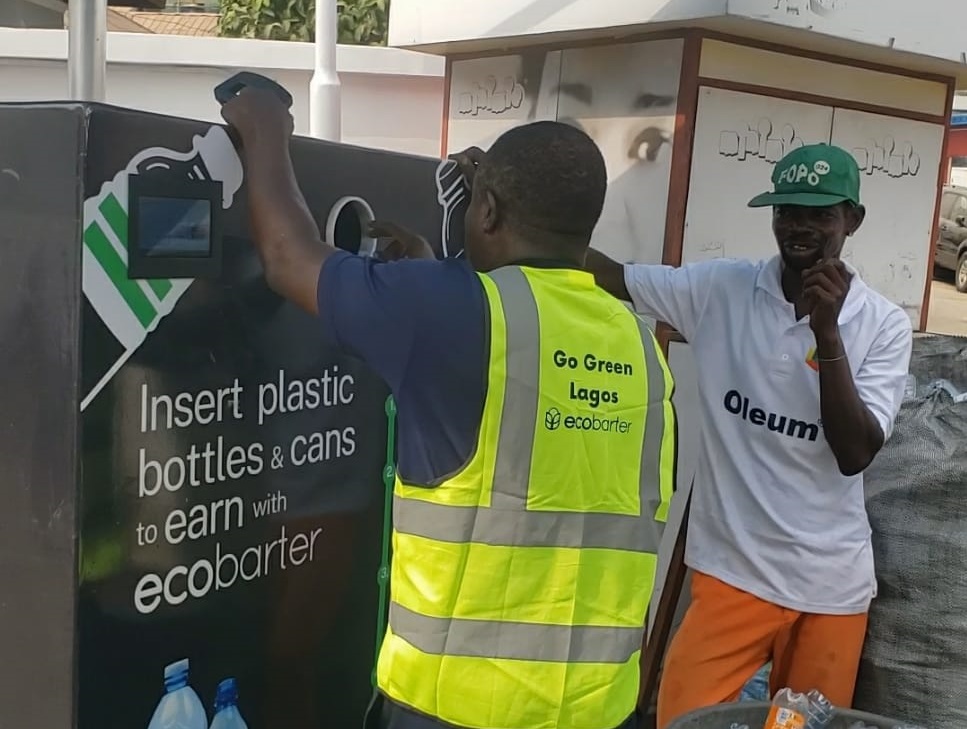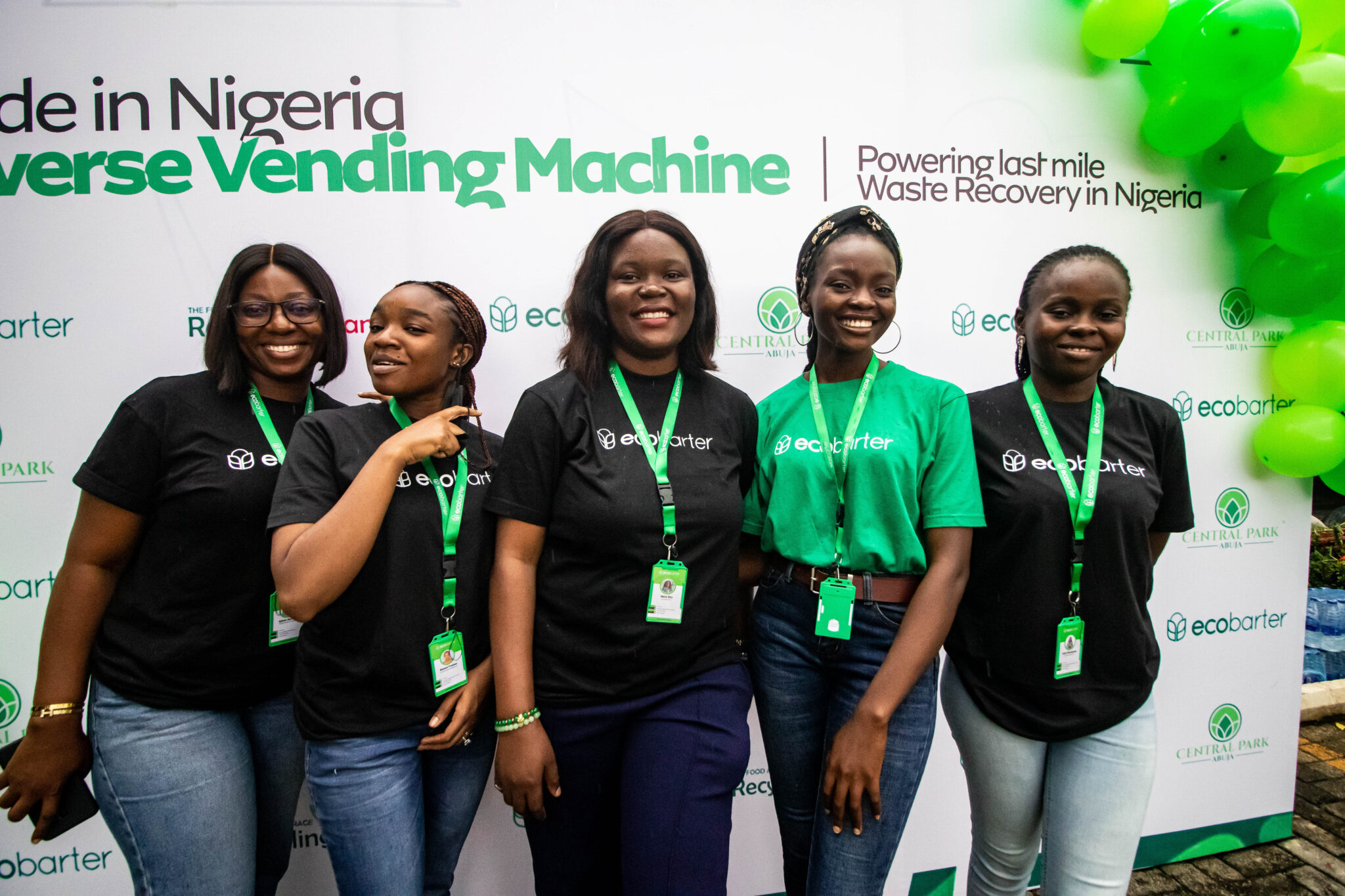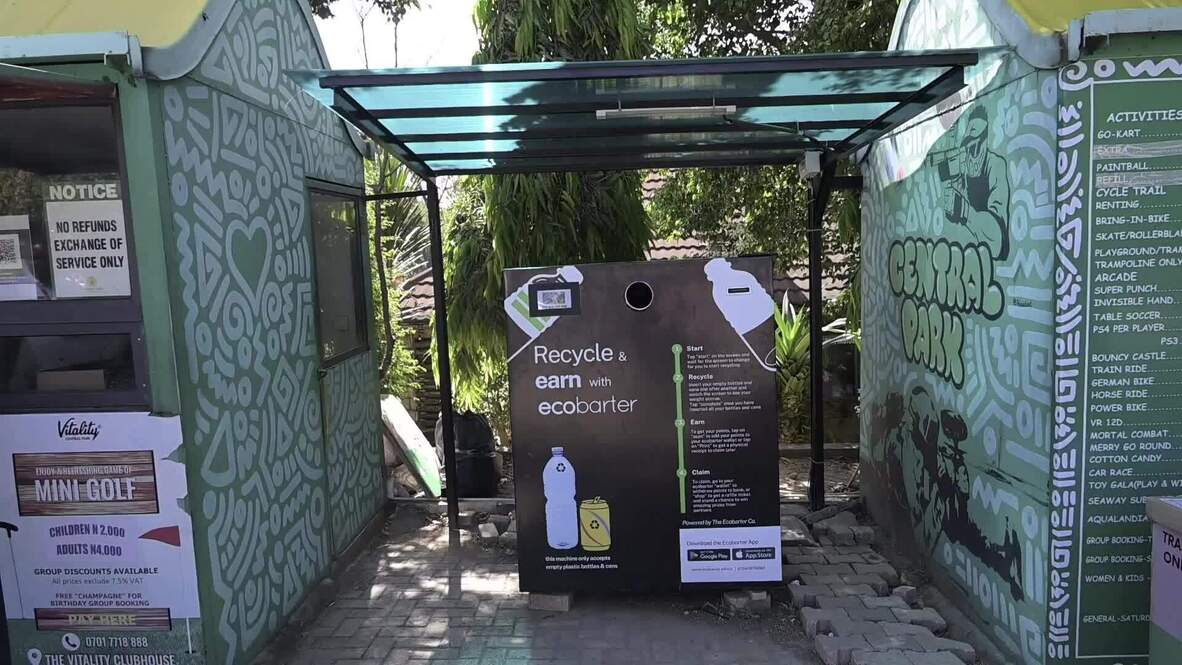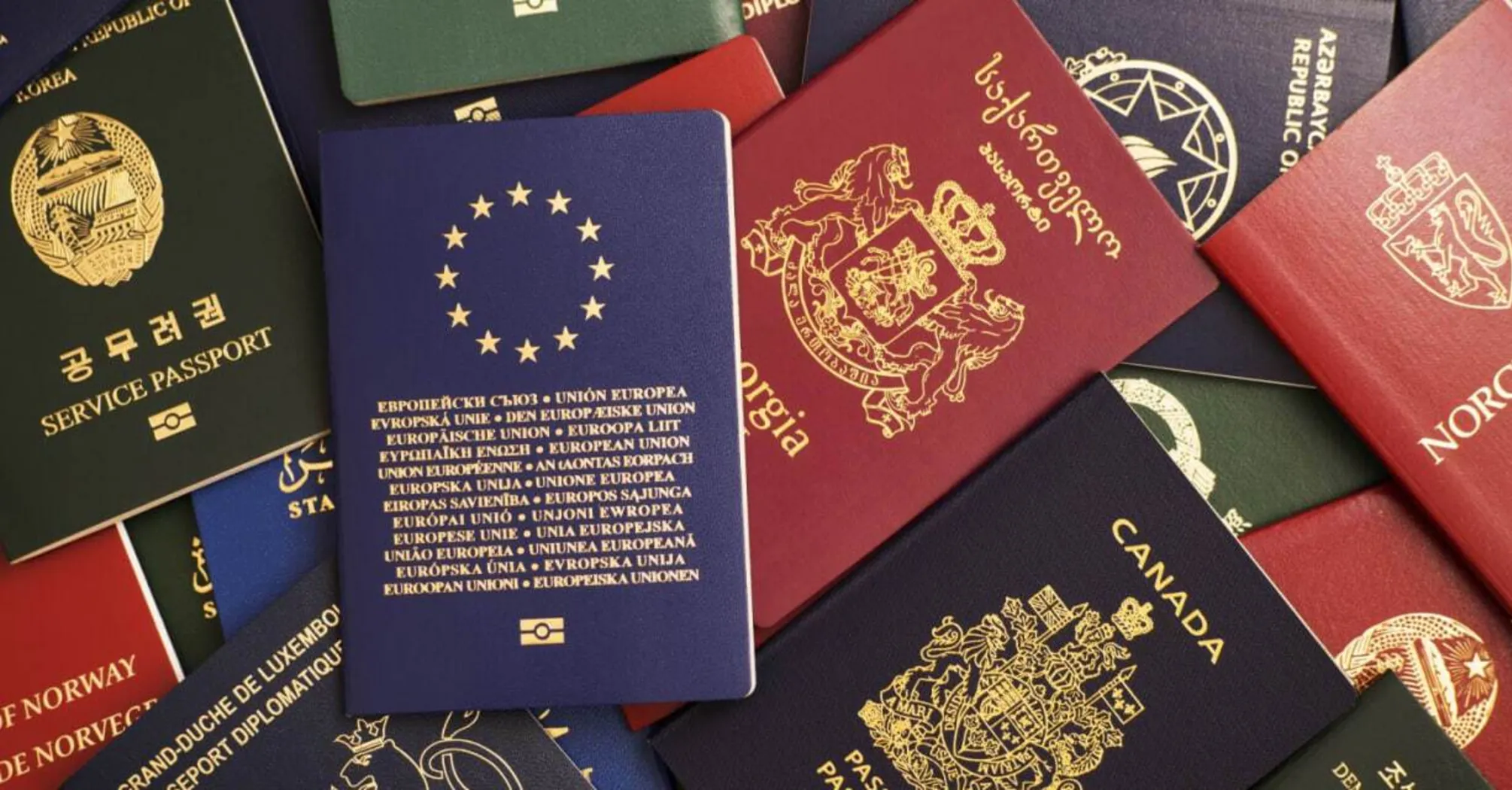ATM for Plastics in Nigeria

A new machine trades your trash for money, but can it really clean up the streets?
They look like vending machines, only backwards. You slide in an empty PET bottle or aluminum can, the machine crunches or stores it, and a screen tells you to collect a coupon, points, or a mobile credit. For people who live day-to-day, that small payout can feel almost miraculous: an instant, visible return for the plastic they used to shrug at.
Nigeria’s reverse vending machines (RVMs) are real, and they’re not science fiction. Locally built machines are already operating in Abuja and Lagos and have been trialled in malls and public parks. The United Nations Industrial Development Organization (UNIDO) and local partners helped commission a batch of 25 locally fabricated RVMs for the Federal Capital Territory in a pilot programme. The machines are part of a push to reduce plastic waste while creating micro-income opportunities and feeding recycling value chains.
Who’s behind the machines?
A few groups have led the charge.
Ecobarter, a Nigerian circular-economy start-up built locally fabricated RVMs and markets them as an “ATM for plastics.” The company runs deployments, demo events and an app that converts returned bottles into points redeemable for cash or vouchers. Ecobarter says its machines are designed to work with Nigerian conditions lower costs, local maintenance, and integration into mobile wallets.

The Federal Government, through collaborations with UNIDO and other partners, has publicly unveiled and supported RVM pilots in the Federal Capital Territory as part of a broader waste-management plan. Reports indicate these pilots target high-traffic public spaces to test acceptance and logistics.
Private partners have joined too: the Kay Group says it launched the first recycling vending machine in partnership with Silverbird Galleria, placing kiosks in spaces where people shop and gather. These corporate pilots link convenience with incentives.
Alongside RVMs, established social enterprises such as Wecyclers continue to run door-to-door and drop-off systems that exchange sorted waste for cash using cargo bikes and collection hubs, a model proven to work in low-income neighbourhoods. Wecyclers and similar outfits remain a vital complement to machine-based systems.
How the machines actually work
Reverse vending machines in Nigeria follow a simple user journey:
Start and scan. The user presses start and inserts a bottle or can. Some machines require bottles to be empty, uncrushed, and dry.
Recognition & acceptance. The RVM checks size, weight or uses sensors (some models include camera/AI) to accept compatible materials. Accepted items are compacted or stored inside the machine.
Reward issued. The machine credits the user via printed voucher, points in a companion app, or mobile wallet credit. Different deployments use different reward models, some give immediate cash vouchers, others convert returns into digital points you redeem later.
Collection & recycling. Operators collect stored materials on schedule and transport them into formal recycling streams. Machines are emptied and serviced by the operating company or a local waste partner.
That simplicity is part of the appeal: it turns waste into a visible transaction. But the devil is in the details and in the logistics behind the screen.
Where you can find them and where you can’t
RVMs are pilots and targeted deployments, not yet a fixture on every street. Reported locations include Central Park in Abuja (an Ecobarter demo launch), select malls such as Silverbird Galleria via private partnerships, and a small number of public spaces in the Federal Capital Territory where the 25-machine pilot took place. Social posts from operators also show machines in Lagos trials.
If you’re picturing a machine on every corner useful for random roadside collectors that’s not the current reality. RVMs are concentrated at high-footfall sites where operators can secure maintenance, supervision and eventual collection. In lower-income neighbourhoods, door-to-door programmes like Wecyclers still do the heavy lifting.

Do they pay well? The economics of bottles
Short answer: they pay something, not a living wage. Rewards vary by deployment and by the operator’s incentive scheme. Some machines issue small cash vouchers or app points that add up if you return many items; others provide coupons for partner stores or mobile airtime. Ecobarter’s model focuses on tokenised points redeemable via app wallets, while pilot machines with corporate partners often offer instant small rewards.
For people collecting plastic casually, the odd bottle from the street or household bins, the payout is modest but meaningful: a few naira per bottle can add up for families who gather dozens. For commercial waste collectors, the machines can be a convenient deposit point that reduces sorting time. But RVMs are not a substitute for formal employment or a guaranteed income stream. Scale, frequency of visits, and proximity to a machine determine how useful it is financially.
RVMs can deliver several measurable wins:
Less litter: By placing a tangible value on bottles, RVMs encourage proper disposal and reduce visible plastic in open drains and streets.
Supply of recyclable feedstock: Collected bottles are cleaner and easier to process than mixed street waste, improving recycling efficiency.
Micro-income & inclusion: The reward model reaches informal earners and can integrate through mobile money.
Local manufacturing and jobs: Locally fabricated machines reduce costs, build technical capacity, and create maintenance jobs. The UNIDO-backed pilot emphasised local fabrication for these reasons.
RVMs are promising but they are not magic. Several realistic constraints limit impact right now.
Machine maintenance and uptime. RVMs require regular servicing, technical support, and cash or voucher top-ups. If an operator can’t maintain machines reliably, communities quickly lose trust. Pilot programmes in Abuja emphasised the need for local maintenance plans.
Contamination of waste. Real-world bottles are often dirty, wet, or mixed with other waste. Machines are finicky about contamination; many RVMs prefer clean, uncrushed bottles. That limits immediate street use unless behaviour is trained and public awareness improves.
Limited coverage and equity. Machines in malls and parks are convenient for middle-class shoppers but inaccessible to many low-income communities. That’s why pairing RVMs with door-to-door programmes or placing machines strategically in transit hubs is important for equity. Wecyclers’ grassroots model still reaches places machines don’t.
Policy & funding. Countries that scale RVMs usually pair them with deposit-return legislation, giving every bottle a refund value at purchase. Nigeria does not yet have a nationwide deposit-return scheme, which makes operator incentives voluntary and fragmented. Policymakers would need to back RVMs with regulation and funding for national scale.
Voices on the ground
Operators highlight enthusiasm. Ecobarter’s demo events and public launches showed crowds testing machines, with organisers emphasising education and app onboarding as part of the rollout. UNIDO and federal statements frame the machines as tech solutions that must be paired with behaviour change and logistics.
Community recyclers tell a subtler story. Door-to-door collectors note that while machines are good for clean collections, the bulk of household plastic still arrives mixed and needs human sorting. Organisations like Wecyclers emphasise that community trust, consistent collection, and small payments have been the backbone of recycling in Lagos, not machines alone.
If you want to try an RVM in your area, here’s what to expect: you’ll be asked to present clean bottles, you’ll get a small voucher or app credit, and you’ll be contributing to a cleaner street. It’s helpful, not transformative.
For policymakers and investors, RVMs point to a larger truth: technology can help unlock circular economies, but scale needs policy (deposit-return laws), funding (to maintain machines and operations), and education (to change disposal habits). The UNIDO-backed pilot shows the government is experimenting, the next step is to link machines with legislation and grassroots systems so benefits reach the many, not the few.
Reverse vending machines are not a miracle cure, but they are a useful tool at the intersection of behaviour change, technology and livelihood. Nigeria’s pilot machines locally fabricated and rolled out with UNIDO and private partners prove the concept: people will bring bottles if somebody pays them, and machines can automate that exchange. But to scale beyond novelty, RVMs must be integrated with grassroots collection models, supported by policy, and backed by reliable maintenance and funding.
If the dream is a cleaner city and pockets that feel the difference, the machine is only the first step. The harder work is logistical, political and social: training people, paying operators, building recycling plants, and passing laws that make every bottle worth returning. Until then, the “plastic ATMs” will be a promising experiment, useful, visible, and worth trying but not yet the wholesale answer to Nigeria’s waste crisis.
You may also like...
Tetsuya Yamagami Pleads Guilty to the Assassination of Japan’s Longest-Serving Prime Minister, Shinz

The assassination of Japan's longest serving Prime Minister, Shinzo Abe remains one of the most shocking successful assa...
The Returnee Wave: How a New Generation Is Rewriting the Story of Migration

Everyone knows the story of leaving But what about the story of coming back? Across African cities, a quiet shift is unf...
Niger Delta's Endless Flare is Africa's Methane Crisis

Methane gas changes the atmosphere of the Niger Delta in Nigeria.
Return of the Misfits: The Diaspora's Best Designers Now Build Their Studios in Accra

Studios, galleries, and cultural hubs are now springing up all over the streets of Accra, founded by Ghanaian creatives ...
From Lagos to London: How African Churches Are Building a Global Faith Empire

From Lagos to London, African Pentecostal churches are building vast transnational networks of faith, money, and influen...
How Africa’s Diaspora Is Powering the Continent’s Future

Discover how Africa’s diaspora is transforming the continent from brain drain to brain gain through innovation, investme...
Hidden Tax: Remittance Fees Steal the Generosity of the Diaspora

Remittances have become Nigeria's most reliable source of foreign exchange, dwarfing FDI and oil revenue combined
Between Two Flags: Dual Citizenship and the Politics of Loyalty

Across Africa, dual citizenship is redefining what it means to belong. As laws evolve and diasporas expand, millions now...




